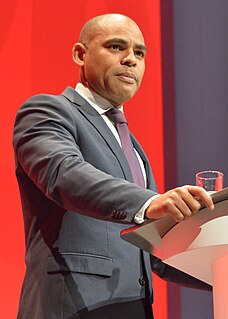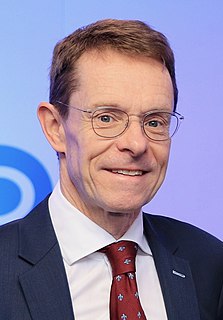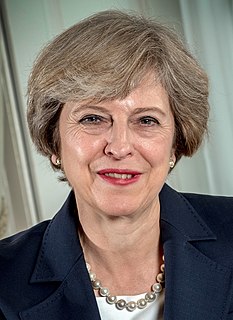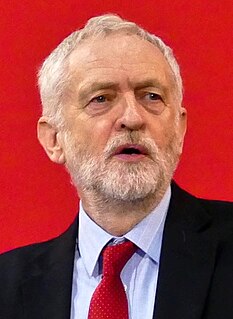
Sheffield City Council is the city council for the metropolitan borough of Sheffield in South Yorkshire, England. It consists of 84 councillors, elected to represent 28 wards, each with three councillors. It is currently under No Overall Control, with Labour, the Liberal Democrats and the Green Party each holding chair positions in a proportionate number of committees, with Labour chairing four Committees, the Liberal Democrats chairing three and the Greens chairing two.

Directly elected mayors in England and Wales, informally known as Metro Mayors, are local government executive leaders who are directly elected by the residents of a local authority area. Examples of metro mayors include the mayor of London, the mayor of Greater Manchester, and the mayor of the Liverpool City Region.

The city of Bristol, England, is a unitary authority, represented by four MPs representing seats wholly within the city boundaries. As well as these, Filton and Bradley Stoke covers the northern urban fringe in South Gloucestershire and the north eastern urban fringe is in the Kingswood constituency. The overall trend of both local and national representation became left of centre during the latter 20th century, but there was a shift to the right in the 2010 general election. The city has a tradition of local activism, with environmental issues and sustainable transport being prominent issues in the city.

The 2012 United Kingdom local elections were held across England, Scotland and Wales on 3 May 2012. Elections were held in 128 English local authorities, all 32 Scottish local authorities and 21 of the 22 Welsh unitary authorities, alongside three mayoral elections including the London mayoralty and the London Assembly. Referendums were also held in 11 English cities to determine whether or not to introduce directly elected mayors.

The 2012 police and crime commissioner elections were polls held in most police areas in England and Wales on Thursday 15 November. The direct election of police and crime commissioners (PCCs) was originally scheduled for May 2012 but was postponed in order to secure the passage of the Police Reform and Social Responsibility Act 2011 through the House of Lords. The government considers the elected commissioners to have a stronger mandate than the "unelected and invisible police authorities that they replace". The elections took place alongside by-elections for the House of Commons in Cardiff South and Penarth, Corby and Manchester Central, and a mayoral election in Bristol.

Elections for Coventry City Council were held on Thursday, 3 May 2012, the same day as other 2012 local elections in the United Kingdom. As the council is elected by thirds, one seat in each of the city's 18 wards was up for election. The Labour Party won the seat in 15 of the wards, gaining a total of 8 and increasing their majority to 32 seats. The Conservative Party won the remaining three seats, losing six, with the Liberal Democrats and the Socialist Party both losing their only seat on the council.
The Mayor of Salford is a directly elected post created in 2012 for the City of Salford in Greater Manchester. The position is different from the long-existing and largely ceremonial, annually appointed ceremonial mayor of Salford.

The 2012 City of Bradford Metropolitan District Council election took place on 3 May 2012. The elections took place shortly after the Bradford West by-election, in which the Respect Party's George Galloway pulled off a shock victory against the incumbent Labour Party. Held alongside was a referendum on directly elected mayors. The Labour Party were one seat short of an overall majority following the election, leaving the council in no overall control.

The Mayor of Bristol is the head of government of Bristol and the chief executive of the Bristol City Council. The Mayor is a directly elected politician who, along with the 70 members of Bristol City Council, is responsible for the strategic government of the city of Bristol, England. The role was created after a local referendum held on 3 May 2012, which followed the passage of the Localism Act 2011. 41,032 voted for an elected mayor and 35,880 voted against, with a turnout of 24%. An election for the new post was held on 15 November 2012.

The 2013 United Kingdom local elections took place on Thursday 2 May 2013. Elections were held in 35 English councils: all 27 non-metropolitan county councils and eight unitary authorities, and in one Welsh unitary authority. Direct mayoral elections took place in Doncaster and North Tyneside. These elections last took place on the 4 June 2009 at the same time as the 2009 European Parliament Elections, except for County Durham, Northumberland and the Anglesey where elections last took place in 2008.

The 2016 United Kingdom local elections held on Thursday 5 May 2016 were a series of local elections which were held in 124 local councils and also saw 4 mayoral elections in England which also coincided with elections to the Scottish Parliament, the Welsh Assembly, the Northern Ireland Assembly, the London Assembly, the London mayoral election and the England and Wales Police and crime commissioners. By-elections for the Westminster seats of Ogmore and Sheffield Brightside and Hillsborough were also held. These proved to be David Cameron's last local elections as leader of the Conservative Party and Prime Minister as he resigned two months later following the defeat of Remain in the referendum on Britain's continuing membership of the European Union which was held seven weeks later.

Elections of police and crime commissioners in England and Wales were held on 5 May 2016.

The inaugural West Midlands mayoral election was held on 4 May 2017 to elect the Mayor of the West Midlands, with subsequent elections to be held every four years from May 2020. The election took place alongside five elections for English metro mayors and other local elections, and ahead of the general election on 8 June 2017.

The 2017 United Kingdom local elections were held on Thursday 4 May 2017. Local elections were held across Great Britain, with elections to 35 English local authorities and all councils in Scotland and Wales.

Council elections in England were held on Thursday 3 May 2018. Elections were held in all 32 London boroughs, 34 metropolitan boroughs, 67 district and borough councils and 17 unitary authorities. There were also direct elections for the mayoralties of Hackney, Lewisham, Newham, Tower Hamlets and Watford.

Local elections in parts of the United Kingdom were held on Thursday 2 May 2019, with 248 English local councils, six directly elected mayors in England, and all 11 local councils in Northern Ireland being contested.

The Mayor of West Yorkshire is a directly elected mayor responsible for the metropolitan county of West Yorkshire in England. The Mayor chairs and leads the West Yorkshire Combined Authority, and assumes the office and powers of the West Yorkshire Police and Crime Commissioner.
The 2022 Birmingham City Council election took place on 5 May 2022, with all 101 council seats up for election across 37 single-member and 32 two-member wards. The election was held alongside other local elections across Great Britain and town council elections in Sutton Coldfield.
The 2022 Newcastle City Council election is currently taking place as of 5 May 2022. One third of councillors—26 out of 78—on Newcastle City Council will be elected. The election will take place alongside other local elections across the United Kingdom.
The 2022 Oldham Metropolitan Borough Council election took place on 5 May 2022. One third—20 out of 60—of councillors on Oldham Council was elected. The election took place alongside other local elections across the United Kingdom.













